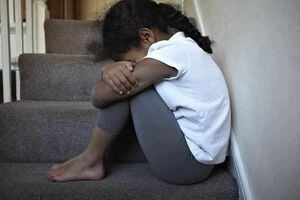Revealed: Nearly 70 children go missing from care in Wolverhampton
Nearly 70 children have gone missing from care in Wolverhampton in the past five years, including a one-year-old and a two-year-old.

'Gone missing' is defined as a child who has had one or more incidents where they are reported missing but returned within a three-day period.
According to a Freedom of Information request, last year had the highest number of missing children in the city at 26. This included one 10-year-old, two 13-year-olds, three 14-year-olds, 10 15-year-olds, eight 16-year-olds and two 17-year-olds.
There has been a sharp increase since 2010/11 when just three children were marked as having one or more missing appearances during the year, two 16-year-olds and a 17-year-old.
Meanwhile, 2011/12 saw 13 children go missing, an increase of 10 on the year before, including a one-year-old, a two-year-old and five 16-year-olds.
Councillor Val Gibson, cabinet member for children and families, said: "Clearly it is important that we do all we can to reduce the number of children who go missing from care.
"We have recently reviewed and updated the policy of how we manage and support missing children and young people, and as a result practise in this area is improving.
"We are also ensuring that an interview is carried out with the young person within 72 hours of their return to ascertain the circumstances. This interview is carried out by an independent person, and at the same time initial screening takes place to assess whether there is any evidence that the young person has either been a victim of, or at risk of, child sexual exploitation.
"The number of children going missing from care has increased in recent years, partly down to the increasing number of children which have been taken into care in Wolverhampton in the last four years, and also because recording of missing children has improved."
A spokeswoman for the NSPCC added: "Children who go missing from care can put themselves at risk of real harm, sometimes falling prey to grooming gangs who specifically target this vulnerable group. They may abscond because they want to get back in touch with family and friends. But whatever the reason thorough checks should be undertaken to establish what is driving them to this potentially dangerous behaviour.
"Care staff have an extremely difficult job and are working hard to combat this problem but if anyone is concerned about a child or looking for advice they can contact the NSPCC's free helpline."
The number is 0808 800 5000 or at help@nspcc.org.uk. Children and young people can also contact ChildLine on 0800 1111 or www.childline.org.uk"





